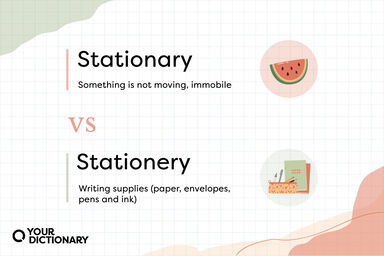Stay Definition
(UK dialectal) (of a roof) Steeply pitched.
(UK dialectal) Steeply.
- To remain in a fixed or established position.
- To hold out or persevere to the end of a race or challenge.
- To remain in one's memory; not be forgotten:
That kind of compliment stays with you for years.
- to remain in place or unchanged
Idioms, Phrasal Verbs Related to Stay
- stay put
- stay the course
- stay with (one)
- in stays
- stay put
- stay the course
Origin of Stay
-
From Middle English steyen, staien, from Old French estayer, estaier (“to fix, prop up, support, stay"), from estaye, estaie (“a prop, stay"), from Middle Dutch staeye (“a prop, stay"), a contracted form of staede, stade ("a prop, stay, help, aid"; compare Middle Dutch staeyen, staeden (“to make firm, stay, support, hold still, stabilise")), from Old Dutch *stad (“a site, place, location, standing"), from Proto-Germanic *stadiz (“a standing, place"), from Proto-Indo-European *stā- (“to stand"). Influenced by Old English stæġ ("a stay, rope"; see above). Cognate with Old English stede, stæde (“a place, spot, locality, fixed position, station, site, standing, status, position of a moving body, stopping, standing still, stability, fixity, firmness, steadfastness"), Swedish stödja (“to prop, support, brace, hold up, bolster"), Icelandic stöðug (“continuous, stable"). More at stead, steady.
From Wiktionary
-
From Middle English *staye, from Old French estaye, estaie (“a prop, a stay"), from Middle Dutch staeye (“a prop, stay"), a contracted form of staede, stade ("a prop, stay, help, aid"; compare Middle Dutch staeyen, staeden (“to make firm, stay, support, hold still, stabilise")), from Old Dutch *stad (“a site, place, location, standing"), from Proto-Germanic *stadiz (“a standing, place"), from Proto-Indo-European *stā- (“to stand"). See above.
From Wiktionary
-
An alternative etymology derives Old French estaye, estaie, from Old Frankish *staka (“stake, post"), from Proto-Germanic *stakô (“stake, bar, stick, pole"), from Proto-Indo-European *(s)teg- (“rod, pole, stick"), making it cognate with Old English staca (“pin, stake"), Old English stician (“to stick, be placed, lie, remain fixed"). Cognate with Albanian shtagë (“a long stick, a pole"). More at stake, stick.
From Wiktionary
-
From Middle English *stay, from Old English stæġ (“stay, a rope supporting a mast"), from Proto-Germanic *stagÄ… (“stay, rope"), from Proto-Indo-European *stek-, *stāk- (“stand, pole"), from Proto-Indo-European *stā- (“to stand"). Cognate with Dutch stag (“stay"), German Stag (“stay"), Swedish stag (“stay"), Icelandic stag (“stay").
From Wiktionary
-
Sense of "remain, continue" may be due to later influence from Old French ester, esteir (“to stand, be, continue, remain"), from Latin stāre (“stand"), from the same Proto-Indo-European root above; however, derivation from this root is untenable based on linguistic and historical grounds.
From Wiktionary
-
From Middle English *steȝe, from Old English *stǣġe, an apocopated variant of Old English stǣġel (“steep, abrupt"), from Proto-Germanic *staigilaz (“climbing, ascending, sloping, steep"), see sty.
From Wiktionary
-
Middle English steien from Old French ester, esteir from Latin stāre stā- in Indo-European roots
From American Heritage Dictionary of the English Language, 5th Edition
Middle English staien from Old French estaiier from estaie a support of Germanic origin
From American Heritage Dictionary of the English Language, 5th Edition
Middle English from Old English stæg
From American Heritage Dictionary of the English Language, 5th Edition
Related Articles
Stay Is Also Mentioned In
Find Similar Words
Find similar words to stay using the buttons below.





